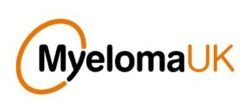Improving myeloma diagnosis with Myeloma UK
Myeloma is a rare blood cancer. Patients have some of the longest waiting times to receive a diagnosis of all cancers so early diagnosis is a priority for Myeloma UK.
The challenge
Myeloma patients often experience vague symptoms which are hard to attribute to the condition. Myeloma UK wanted to improve diagnosis through the non-specific symptom (NSS) pathway. They came to us for support to identify key stakeholders and activities that could promote best practice, improve diagnosis and build collaboration between experts working in the area of myeloma.
Through a rapid review of policy documents, a series of focus groups and semi-structured interviews with cancer alliances and myeloma experts, we identified current best practice in myeloma diagnosis in the NSS pathway. As well as key stakeholders and activities to influence and enable change, including GPs, cancer alliances, clinical leads, haematology stakeholders, clinical laboratories, Primary care networks, education course organisers, and third sector organisations.
We then convened a group of expert stakeholders to take the work forward. Areas of key practice to improve myeloma diagnosis in NSS pathways were:
- improving support for GPs by increasing awareness of myeloma and the interpretation of test results
- increasing the availability of a myeloma screening tests across the country
- building relationships between professionals across the NSS pathway
Our approach
We started with a workshop with the Myeloma UK team to fully understand their goals for the project and how they planned to use the findings. Then we created a research methodology and conducted detailed desk research of policy documents.
Our accessible, highly interactive approach to focus groups was particularly impactful. We brought together a diverse group of myeloma experts to share best practice and co-create an action plan for improving myeloma diagnosis.
To reach as broad a group of stakeholders across the country as possible, we used digital focus groups and interviews. We circulated the materials in advance and offered a range of ways for people to engage with the work, so we could maximise the time we had with the group members. We also used online tools to map stakeholders, prioritise activities by impact and urgency and identify next steps for Myeloma UK.
The results
As a result of this work myeloma experts co-created an ‘action plan’ of activities and key recommendations to improve myeloma diagnosis that Myeloma UK could take forward. Since this project, extensive work has been done to put this work into practice to improve diagnosis and the quality of life for Myeloma patients.
Myeloma UK is working with GPs and healthcare professionals and working with cancer charities to raise awareness of the symptoms of myeloma, and they have produced the Myeloma Diagnosis Pathway, a quick reference tool for healthcare professionals.
Thanks to this valuable work with Kaleidoscope, we have built stronger relationships with our key stakeholders. From this work we are creating a comprehensive report with recommendations to advocate for improvements to patients’ experiences of diagnosis and care.
Sarah Galley, Senior Policy Officer, Myeloma UK

